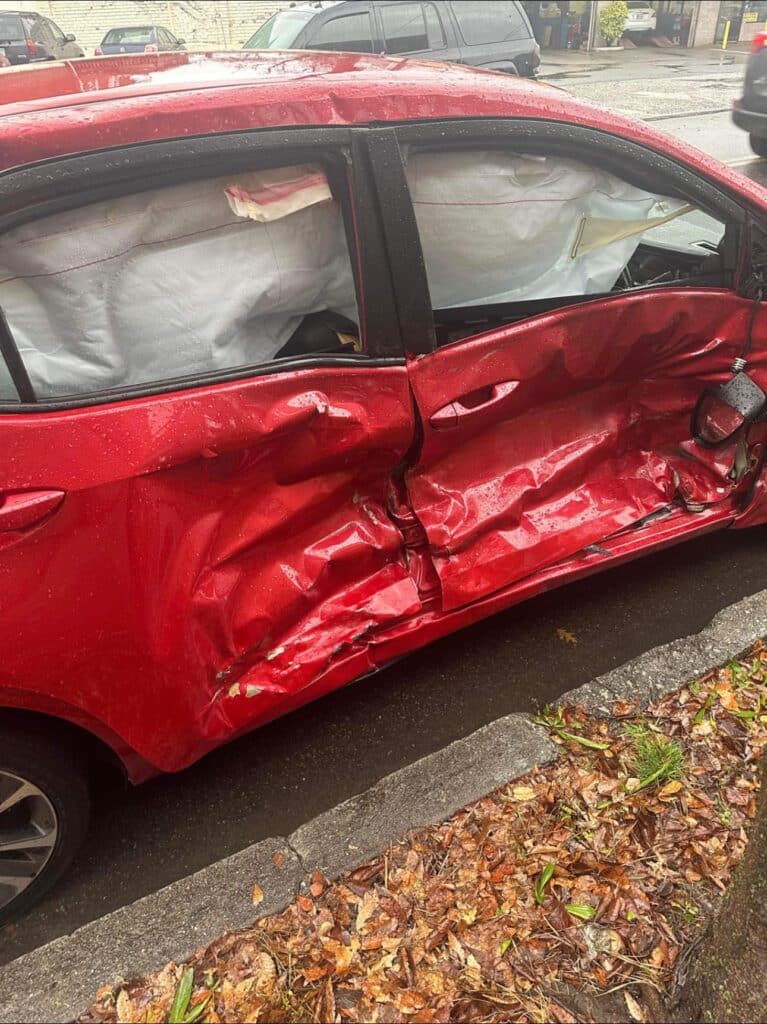Someone Else Was Driving My Car And Got Into An Accident!
If someone has an accident while driving your car, the responsibility and liability will depend on who caused the accident.
It will also depend on the terms of your auto insurance policy.
You need to understand who’s covered—and who isn’t—on your car insurance policy.
Did You know that 1 in 5 drivers are uninsured in the state of Texas?
Before you let a friend borrow your car, make sure they aren’t one of them. And make sure you aren’t held accountable for any injury they may cause to another driver.
Who Is Liable When The Other Driver Causes A Car Accident?
The general rule is that the driver who causes the accident is liable for the damages.
If you let a friend or family member drive your car, and then they get into an accident that was caused by a driver in a different vehicle, the other driver is responsible.
The other driver’s liability insurance will be called on to cover:
- The property damage to your car, and
- The legal damages of the person who was driving your car.
However, you may still see your car insurance rates go up after the crash. Auto insurance companies will often justify this by saying you are more of a risk because you loaned your car to someone else.
What If Someone Else Drove My Car And Caused The Crash?
If someone else was driving your car and they caused the crash, two factors will determine whether you can be held liable or not:
- The terms of your auto insurance policy (the precise details of the policy will make a big difference).
- Whether you gave them permission to use your car.
Most auto insurance policies provide coverage to the vehicle, not to whomever is driving. In other words, the liability coverage generally extends to the person driving your vehicle, even if it was not you.
However, there are often exceptions to liability coverage based on whether the other person was driving with your permission or not. Your responsibility is different, for example, if your car was stolen than if you negligently entrusted it to someone.
What does “negligent entrust” mean? Examples of negligent entrustment of your vehicle include:
- Allowing a child to drive it
- Giving the keys to an intoxicated friend so they can drive home
- Asking a friend who is under the influence of drugs to drive
- Lending your car to someone who has lost their driver’s license due to unsafe driving
- Letting an elderly person with dementia drive your vehicle

In these situations, your car insurance would no longer cover the permitted use of your vehicle, and victims could hold you liable for their losses.
Furthermore, some states consider it a crime to entrust your vehicle to someone who is clearly a risk.
Texas Car Insurance: Who’s Covered?
Let’s look at the basics of insurance policies and uninsured drivers and how you can be impacted if there’s an injury accident.
What Is ‘Permissive Use’?
Say you go to a bar with some friends. You let your buddy drive your car home because he volunteered to be the designated driver (with you in the passenger’s seat). Or say you let your neighbor borrow the car to go to a doctor’s appointment (while you stay home).
In both cases, the drivers aren’t specifically listed on your insurance policy, but they are covered under permissive use. If you let someone else drive a vehicle, the coverage typically remains active in Texas.
Take a look at your policy to be sure it allows permissive use. There are always exceptions to permissive use coverage, such as when the friend is borrowing your car for business purposes or when the friend has a bad driving record.
If your friend causes an injury accident, your liability coverage will act as the primary coverage and will pay for the damages until it is exhausted. At that point, it will trigger the liability insurance of the driver of your vehicle. The driver’s insurer, as a secondary coverage, will pay the remaining damages until it has been exhausted.
This combination of insurance coverage can compensate the victim of the accident and protect your friend from being held personally liable to pay that compensation.
However, your car insurance premium rates will likely go up in this scenario. Many insurers claim that loaning your car makes you a riskier person to cover, so be careful about who gets your keys!
If you negligently entrust someone with permission to use your car, you may be held liable.
What Is ‘Non-Permissive Use’?
Say a friend or a family member borrows your car without asking for it. Or someone hotwires your car while it’s parked in front of your house and you never see it again.
In both cases, the driver (not you, the owner) will likely be responsible for any injury accidents that may occur.
If someone was driving your car without your permission, that is a non-permissive use. Your insurance coverage does not extend to non-permissive uses of your vehicle. It will be the at-fault driver’s insurance coverage that will have to pay for the damages caused.
In cases where the driver stole the car from the vehicle owner, the driver often does not have any type of insurance. This can leave injury victims reliant on any uninsured motorist coverage that they might have.
They may not recover any compensation at all. They will still have to pay their car insurance policy’s deductible. These victims should contact a car accident lawyer and file an accident claim.

What Is An ‘Excluded Driver’ Provision?
As we said, in most cases an insurance policy will follow the vehicle, not the driver.
But when there is an excluded driver provision, the person is purposely excluded from an insurance policy.
If somebody drives a car insured by a policy they are excluded from, neither the insurance company nor the driver can be held liable for the accident. There are a few reasons why a driver would be purposely excluded from a family’s policy:
- Lower insurance premiums
- Bad driving record (DWI, for example)
- Excessive prior insurance claims
- Driver is too young
Getting into an accident with an excluded driver can hurt law abiding Texans just trying to do the right thing. You may have full coverage. Meaning if you cause a crash your insurance company will help you make the repairs, but you’ll have to pay the deductible and face higher insurance rates going forward.
What Is An Underinsured Driver’ Provision?
An uninsured driver might be someone who is an excluded driver on someone else’s policy. It’s also possible they could be driving a car that has no insurance policy on it at all.
A driver in Texas is required to purchase a coverage plan that covers at least
- $30,000 per person
- $60,000 per accident
- $25,000 in property damage per accident
That said, we’ve seen time and time again that an insurance company will use any excuse they can not to honor the liability policy. If you find yourself in this situation, seek out legal help immediately.
It’s best to make sure your driver’s license and car insurance policy are always up to date. Driving without a license or insurance could leave you responsible for a sizable civil “surcharge” as part of Texas’ Driver Responsibility Program.
What Should I Do If My Car Is Involved In A Crash?
If the driver of your car contacts you after a crash, instruct them to:
1. Seek medical attention immediately.
2. Document the scene by taking photos and videos.
3. Gather contact information from any eyewitnesses.
4. Exchange information with the other involved parties.
5. Avoid admitting fault or claiming they are uninjured.
Finally, be sure to contact the personal injury attorneys at Funk and Associates. The at-fault driver’s insurer will try to persuade you to settle with a low-ball offer, but we will fight for the highest settlement possible to cover all your repairs and medical costs.


